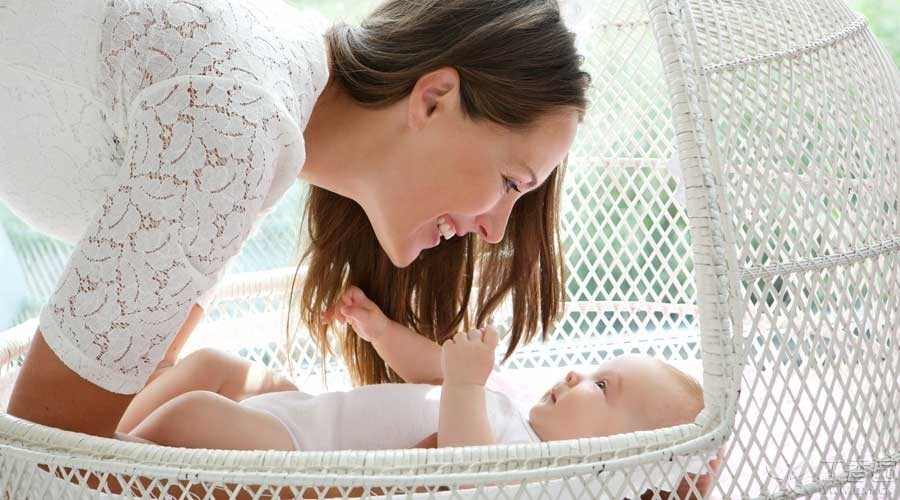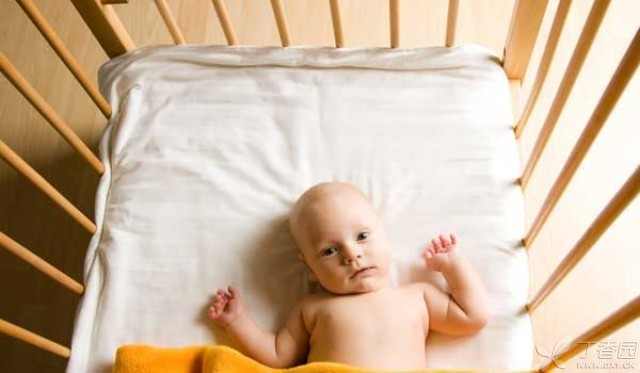
Parents are often concerned about the quality of their babies’ sleep and ignore the safety of their babies’ sleep. However, it is obvious that the safety of sleep is more important than the quality of sleep. We must first ensure that the newborn can sleep safely before considering the [higher] quality of sleep.
Sleeping in different beds is the safest.
The American Academy of Pediatrics recommends that babies sleep with their parents (near their beds) and in different beds.
Sleeping together does not mean sleeping in the same bed. Sleeping together refers to an arrangement in which parents and babies sleep in close proximity and can see, hear or touch each other. Sleeping together includes, but does not necessarily include, sleeping in the same bed.
Different beds in the same room are safer than sleeping in the same bed, and are safer than sleeping in different rooms. This arrangement can avoid all kinds of possible risks of mother and infant sleeping together to the greatest extent. At the same time, sleeping in the same room also ensures close contact with the baby, making breast-feeding, comforting and observing the baby very convenient.
There is also a potential danger in the mother’s arms.
Many mothers believe that nursing in the same bed is more convenient and can strengthen the connection between mother and child. Even some mothers believe that only sleeping in her arms can better ensure the safety of the baby. These mothers believe that they can remain alert even when they are asleep.
These thoughts of Chinese mothers, Foreign mothers also have. Sleeping in separate beds with babies has been advocated in the United States for many years. The results are still not satisfactory. A national survey in the United States found that Forty-five percent of parents have slept with their babies less than eight months old in the past two weeks. A survey in Bradford also found that 15.5 percent of families have slept with their babies in the same bed, 7.2 percent often do so, and 9.4 percent have slept with their babies on the sofa.
Epidemiological studies have found that sleeping in the same bed may increase these risks: overheating, dyspnea and airway obstruction of infants, covering their heads and breathing again (repeated inhalation of exhaled exhaust gas, hypoxia, hypercapnia, etc.), exposure to second-hand smoke, etc. These are all risk factors for sudden neonatal death syndrome. A meta-analysis of 11 studies in recent years found that the risk of sudden neonatal death syndrome increased 2.88 times when sleeping with infants.
In addition, adult beds are not designed for the safety of infants, which also increases the risk of accidental injury and death of infants, such as suffocation, being pressed, falling out of bed, falling into soft places or quilts affecting breathing, etc. Infants, especially infants less than 3 months old, premature infants and low birth weight infants, have great risks in sharing a bed with their parents. Perhaps it is because their athletic ability and muscle strength are not yet mature and it is difficult to escape potential threats.
In recent years, there have been more and more reports of sudden infant death caused by dangerous sleep environment in the United States, especially when sleeping in the same bed or on sofa or chair. Similar reports are also frequently reported in newspapers in China.
The 2011 report of the American Academy of Pediatrics on Sudden Neonatal Death Syndrome said that there is not enough evidence to say under which circumstances it is safe for mothers and infants to share beds in hospitals or families, and any equipment claiming to make mothers and infants share beds [safe] is not recommended.
The following situations are especially dangerous and parents must avoid them at all times:
-
One or both parents smoke;
-
Even if they do not smoke, the baby is less than 3 months old.
-
The baby was placed on a soft sunken surface;
-
Some soft things, such as pillows or blankets, were placed on the bed.
-
Many people share the same bed;
-
Parents drank wine;
-
Sitting in bed with someone who is not a parent.

For the sake of safety, it is worthwhile to lose convenience.
Babies can be carried to the bed for nursing or soothing (the mother can nurse the baby lying down or let the baby sleep soundly beside her, but only if the mother is awake). Once parents are ready to sleep, they should put the baby back into their cot or cradle.
As children grow up, exercise ability develops and muscle strength increases, the risk of sudden death during sleep will become smaller and smaller. However, there is no strict definition of whether they can sleep in the same bed when they come to what. Such accidents mainly occur in infants who are younger than months old, but older children are not absolutely safe.
Issues related to life safety are more important than those related to common minor diseases, minor injuries and malnutrition in what. A small life will disappear with a little carelessness (perhaps just a dozen seconds of unconscious sleep). Although the occurrence rate of sudden neonatal death is not high (1 ‰ ~ 2 ‰), It mainly occurs in the early morning and during sleep). Many children who share the bed with their parents have grown up safely and healthily (thank God). However, once there is an accident, it is an irreversible tragedy. This kind of pain is unbearable for a family and unbearable for our society.
Parents place their children on safer beds or cradles that you can see and hear from each other within your reach and are designed for baby safety. It is also more convenient to pick him up and nurse him. It is also possible to see and hear his needs and respond quickly. Although a little convenience has been lost, it is in return for a safer sleep environment. I think the lost convenience for safety is worth it, don’t you think?
Responsible Editor: Zhang Jingyuan
Photo from: Shutterstock.com
This article is reprinted by Clove Garden authorized by WeChat Public Number [Hi Good Pregnancy]
